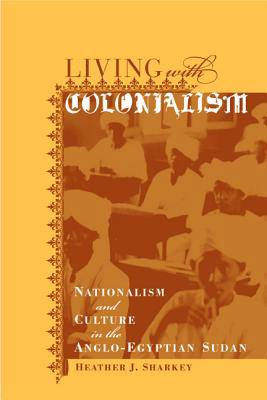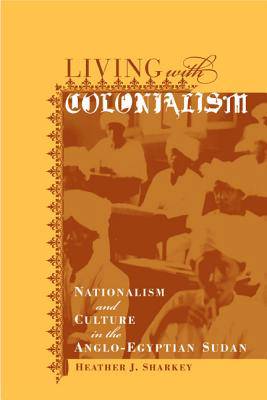
Door een staking bij bpost kan je online bestelling op dit moment iets langer onderweg zijn dan voorzien. Dringend iets nodig? Onze winkels ontvangen jou met open armen!
- Afhalen na 1 uur in een winkel met voorraad
- Gratis thuislevering in België vanaf € 30
- Ruim aanbod met 7 miljoen producten
Door een staking bij bpost kan je online bestelling op dit moment iets langer onderweg zijn dan voorzien. Dringend iets nodig? Onze winkels ontvangen jou met open armen!
- Afhalen na 1 uur in een winkel met voorraad
- Gratis thuislevering in België vanaf € 30
- Ruim aanbod met 7 miljoen producten
Zoeken
Living with Colonialism
Nationalism and Culture in the Anglo-Egyptian Sudan Volume 3
Heather J Sharkey
€ 59,45
+ 118 punten
Omschrijving
Histories written in the aftermath of empire have often featured conquerors and peasant rebels but have said little about the vast staffs of locally recruited clerks, technicians, teachers, and medics who made colonialism work day-to-day. Even as these workers maintained the colonial state, they dreamed of displacing imperial power. This book examines the history of the Anglo-Egyptian Sudan (1898-1956) and the Republic of Sudan that followed in order to understand how colonialism worked on the ground, affected local cultures, influenced the rise of nationalism, and shaped the postcolonial nation-state.
Relying on a rich cache of Sudanese Arabic literary sources, including poetry, essays, and memoirs, as well as on colonial documents and photographs, this perceptive study examines colonialism from the viewpoint of those who lived and worked in its midst. By integrating the case of Sudan with material on other countries, particularly India, Sharkey gives her book broad comparative appeal. She shows that colonial legacies-such as inflexible borders, atomized multi-ethnic populations, and autocratic governing structures-have persisted, hobbling postcolonial nation-states. Thus countries like Sudan are still living with colonialism, struggling to achieve consensus and stability within borders that a fallen empire has left behind.
Relying on a rich cache of Sudanese Arabic literary sources, including poetry, essays, and memoirs, as well as on colonial documents and photographs, this perceptive study examines colonialism from the viewpoint of those who lived and worked in its midst. By integrating the case of Sudan with material on other countries, particularly India, Sharkey gives her book broad comparative appeal. She shows that colonial legacies-such as inflexible borders, atomized multi-ethnic populations, and autocratic governing structures-have persisted, hobbling postcolonial nation-states. Thus countries like Sudan are still living with colonialism, struggling to achieve consensus and stability within borders that a fallen empire has left behind.
Specificaties
Betrokkenen
- Auteur(s):
- Uitgeverij:
Inhoud
- Aantal bladzijden:
- 245
- Taal:
- Engels
- Reeks:
- Reeksnummer:
- nr. 3
Eigenschappen
- Productcode (EAN):
- 9780520235595
- Verschijningsdatum:
- 18/03/2003
- Uitvoering:
- Paperback
- Formaat:
- Trade paperback (VS)
- Afmetingen:
- 155 mm x 229 mm
- Gewicht:
- 349 g

Alleen bij Standaard Boekhandel
+ 118 punten op je klantenkaart van Standaard Boekhandel
Beoordelingen
We publiceren alleen reviews die voldoen aan de voorwaarden voor reviews. Bekijk onze voorwaarden voor reviews.











